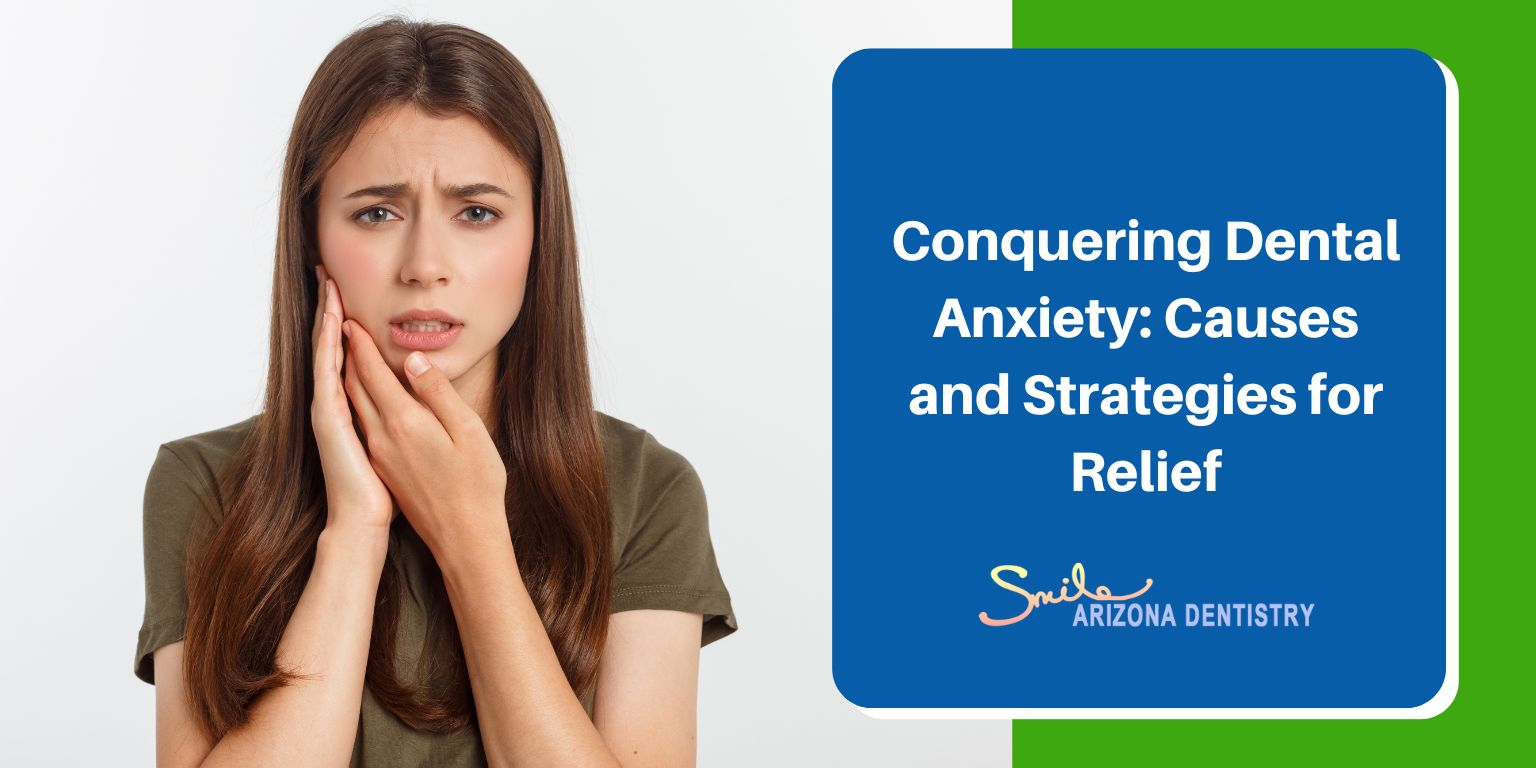


Dental anxiety, sometimes referred to as dental phobia, is a widespread issue that impacts many people. Dental anxiety can range in intensity from moderate apprehension to panic attacks. People who experience dental anxiety may completely avoid visiting the dentist, which can result in major oral health issues. Fortunately, there are a number of methods and strategies that may be applied to lessen dental anxiety and make appointments less stressful. If you’re suffering from dental anxiety, read on to understand its causes and symptoms and how you can effectively manage its effects.
Dental anxiety refers to feelings of worry and fears that you may have surrounding dental operations. It affects a large number of people and can range in intensity from mild discomfort to paralyzing anxiety, preventing patients from receiving the necessary dental care. A number of factors, including uncomfortable past dental visits, a dread of pain, or the sounds and smells connected to dental operations, can contribute to this disorder. It's important for people to get support and assistance to manage their dental anxiety and get the care they need. Dental anxiety is known to have a large impact on oral health and general well-being.
Here are a few frequent indications and symptoms of dental anxiety you may need to watch out for:
Dental anxiety can affect people of different ages and socioeconomic backgrounds. However, it is more likely to strike some people than others:
Negative previous experiences: Traumatic events, especially those that occurred when you were a child, such as unpleasant dental operations, might cause dental anxiety and raise your chance of developing dental anxiety.
Fear of pain: The fear of pain during dental operations raises the possibility of developing this anxiety.
Loss of control: The feeling of helplessness or losing control you may feel while receiving dental care might also trigger this anxiety.
Sensory stimuli: For some people, the sights, sounds, and odors associated with dental operations can be overpowering and cause anxiety.
Anxiety disorders: People with underlying anxiety disorders, such as panic disorder or generalized anxiety disorder, may be more likely to experience dental anxiety.
Oral health can be significantly impacted by dental anxiety. Avoiding visiting a dentist due to dental anxiety may lead you to develop oral health problems like tooth decay, gum disease, and other dental disorders, especially if you put off getting the necessary dental care. Additionally, neglecting dental care might result in the escalation of serious dental issues that call for riskier and sometimes unpleasant operations. Oral health problems, if left untreated due to dental anxiety, can seriously harm your overall health. Therefore, it is critical for you to confront your anxieties and get the dental treatment you require to preserve excellent oral health.
Although overcoming dental phobia can be difficult, it is possible with a variety of methods to help develop trust in your dental practitioner. Here are some strategies to help alleviate dental anxiety:
If you're struggling with dental anxiety but know you need dental care, we're here to help. At Smile Arizona Dentistry, we specialize in making patients feel comfortable and at ease during their appointments.
We offer various levels of sedation dentistry to help patients with dental anxiety relax during their dental procedures. From mild sedation to deep sedation, our experienced team will tailor the sedation technique to your needs, ensuring a calm and stress-free experience.
Contact us today to schedule an appointment and take the first step towards better oral health.
8 Effective Tips to Help Ease Your TMJ Pain
10 Unexpected Causes of Tooth Sensitivity and How to Treat It
Dental Hygiene: What Can You Expect at Your Appointments
Nourish Your Smile: The Top Foods to Eat and Avoid for Optimal Dental Health